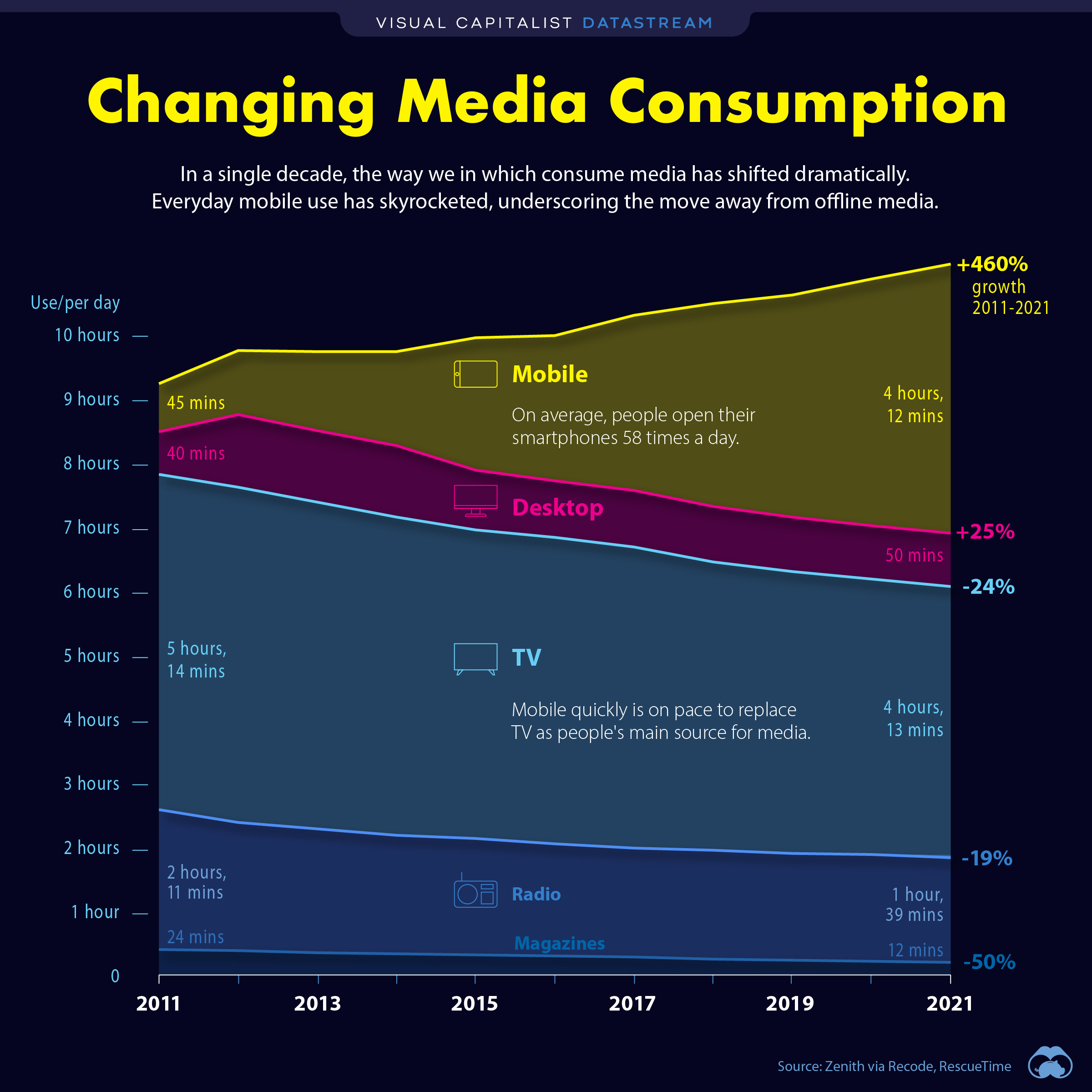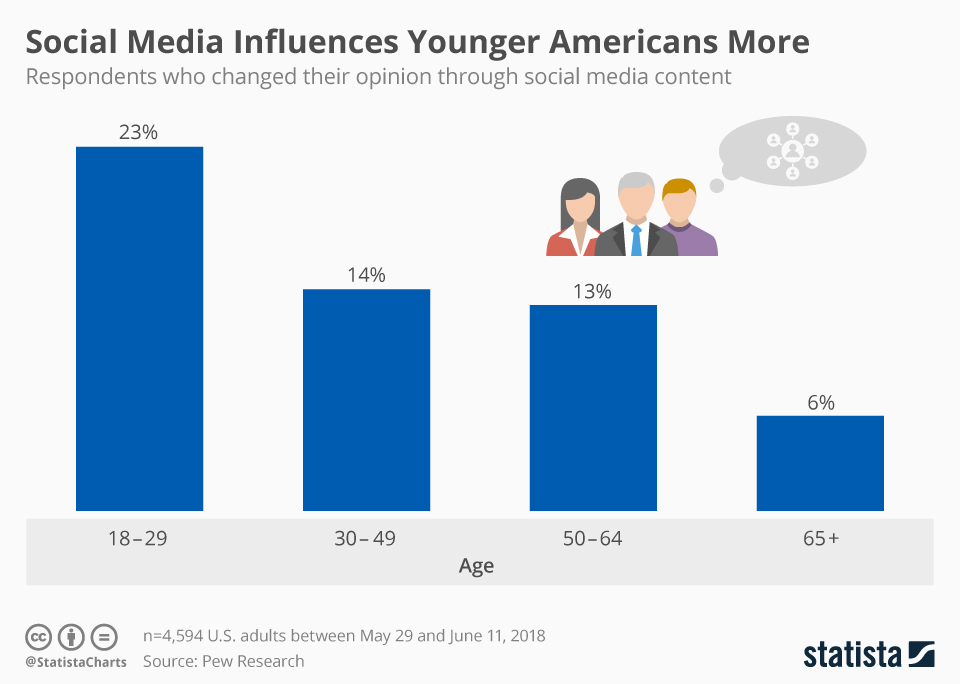VladimirGenkovski
AP US Government 👩🏾⚖️
240 resourcesSee Units
Media and Political Information
The rise of digital technologies and the increasing role of social media have had a profound impact on the way citizens in the United States acquire political information. In the past, citizens were primarily reliant on traditional news media, such as television, radio, and newspapers, for their political information. However, with the rise of the internet and the increasing availability of mobile devices, citizens now have access to a wider range of news sources and can get real-time updates on breaking events.
The media is considered a blessing and a curse for politicians and other policymakers at all levels of government because they can sway public opinion (in favor and in opposition of government officials) and affect the policy-making process in a variety of ways. Some political scientists refer to the media as the “Fourth Branch of Government” because of its ability to set the policy agenda as they deem what’s worthy (and what’s not) to be reported on.
The United States government provides for a free press 📰 🗽 through the First Amendment of the Constitution 📜 Similar to political parties, interest groups, and elections, the media is considered a linkage institution because of the daily reporting provided to American citizens. Through TV news 📺 , print and digital newspapers 📰 💻 and magazines, and a plethora of social media platforms 📲, Americans are linked to their government more than ever.
The greed 💰💲 and corruption of the industrial age 🏭 in the United States led to the birth of a new form of journalism in the early 1900s known as investigative reporting 👀 🔎 Progressive journalists became known as “muckrakers” for their efforts in publishing editorials, articles, photo journals, and books that exposed unregulated industrial abuses. This form of journalism continues to thrive in our modern media landscape, and can be credited with exposing political fraud and scandals throughout the 20th century (e.g. Watergate).
Communication technologies have evolved throughout American political history, revolutionizing the way Americans obtain political news. Radio (in the 1920s) and TV (1950s) broadcasts were the norm throughout much of the 20th century, providing viewers and listeners with a few options to receive daily political news through a limited number of networks. In the 1980s and 1990s, cable news networks such as CNN, MSNBC, and Fox News were introduced and provided cable subscribers with 24-hour, around the clock 🔄 ⌚ news reporting. This marked a shift away from broadcasting to narrowcasting—programs that targeted 🎯 specific types of ideological viewers, rather than appealing to a larger, more politically diverse audience. Although cable news has become more common, the original Big Three broadcasting networks (CBS, NBC, ABC) still attract millions of viewers each night.

An increasing number of Americans are using the Internet as their primary source of political news. Internet news has transformed in recent decades as traditional news organizations have either died out 💀 or adjusted to the new Internet media landscape. Many online news sources were “born on the web 👶,” and have increased in popularity by hiring talented journalists from traditional news companies. Starting with Facebook in the early 2000s, social media platforms have become the primary means of obtaining political news for many Americans, especially teenagers and college-age individuals. This reality has forced traditional news companies to integrate social media platforms into their business plans in order to remain relevant in the new digital age.
One of the most significant changes in the way citizens acquire political information is the rise of social media. Social media platforms such as Twitter, Facebook, and Instagram provide a space for individuals to share their thoughts and opinions on political issues and engage in political discourse. For example, during the 2020 presidential election, social media played a key role in amplifying political messages, with candidates using platforms such as Twitter to reach a large audience and engage with voters.

In addition to social media, new communication technologies have also influenced how citizens access political information. The rise of online news websites, blogs, and other digital platforms has made it easier for individuals to stay informed about political issues and events. For example, websites such as CNN and Fox News offer live streaming of political events and up-to-date coverage of breaking news in the United States. Furthermore, advances in search algorithms and machine learning have made it easier for individuals to find relevant and reliable information online.
However, while these new technologies have made it easier for individuals to access political information, they have also created new challenges. The abundance of information available online and the ease with which false information can be spread has made it more important than ever to verify sources and critically evaluate the information being consumed. For example, during the 2016 US presidential election, fake news and misinformation spread quickly on social media, leading to confusion and distrust among the public in the United States.
Another challenge posed by new technologies is the increasing role of algorithms in shaping what information individuals see. Online news feeds and search results are often tailored to an individual's interests and previous search history, meaning that people are often only exposed to information that confirms their existing beliefs and biases. This can lead to the creation of "echo chambers" where individuals only see information that supports their views, leading to a lack of diversity in political discourse in the United States.
Media and Polling Results
The media's use of polling results to convey popular levels of trust and confidence in government can impact elections by turning them into popularity contests. When the media focuses primarily on polling numbers and the relative popularity of candidates, it can shift the focus away from the qualifications, platforms, and policies of the candidates. As a result, the election can become more about which candidate is leading in the polls, rather than which candidate has the best qualifications, platform, and policies.
This can have significant consequences for the election outcome and the quality of representation that voters receive. When the focus is on popularity rather than qualifications and platforms, voters may be more likely to vote for a candidate based on their personality, celebrity status, or charisma rather than their ability to govern effectively. This can result in candidates who are less qualified or who have poor policies being elected, which can have negative consequences for the country and its citizens.
In addition, the use of polling results can also create a self-fulfilling prophecy. If a candidate is leading in the polls, the media may give them more coverage, further boosting their popularity. This can create a feedback loop, where the media's coverage reinforces the candidate's lead in the polls, leading to more media coverage, and so on. This can create a distorted perception of the election, with the media and voters focusing on the "horse race" rather than the candidates' qualifications and platforms.
Furthermore, the use of polling results can also influence how voters view the election and the government. When the media focuses on the popularity of candidates, it can create the perception that the election is a popularity contest and that the government is a product of popularity rather than qualifications and policy. This can lead to a lack of trust and confidence in the government, as voters may believe that elected officials are not qualified to govern and that the election process is not based on merit.
Browse Study Guides By Unit
🏛Unit 1 – Foundations of American Democracy
⚖️Unit 2 – Branches of Government
✊🏽Unit 3 – Civil Liberties & Civil Rights
🐘Unit 4 – American Political Ideologies & Beliefs
🗳Unit 5 – Political Participation
🤔Exam Skills

Fiveable
Resources
© 2025 Fiveable Inc. All rights reserved.